It was a tall order, as the service also called for the aircraft to enter service by 1967!
While all of the offerings were considered, one stood out.
The aircraft was derived from the F-8 Crusader but was still a totally different warbird.
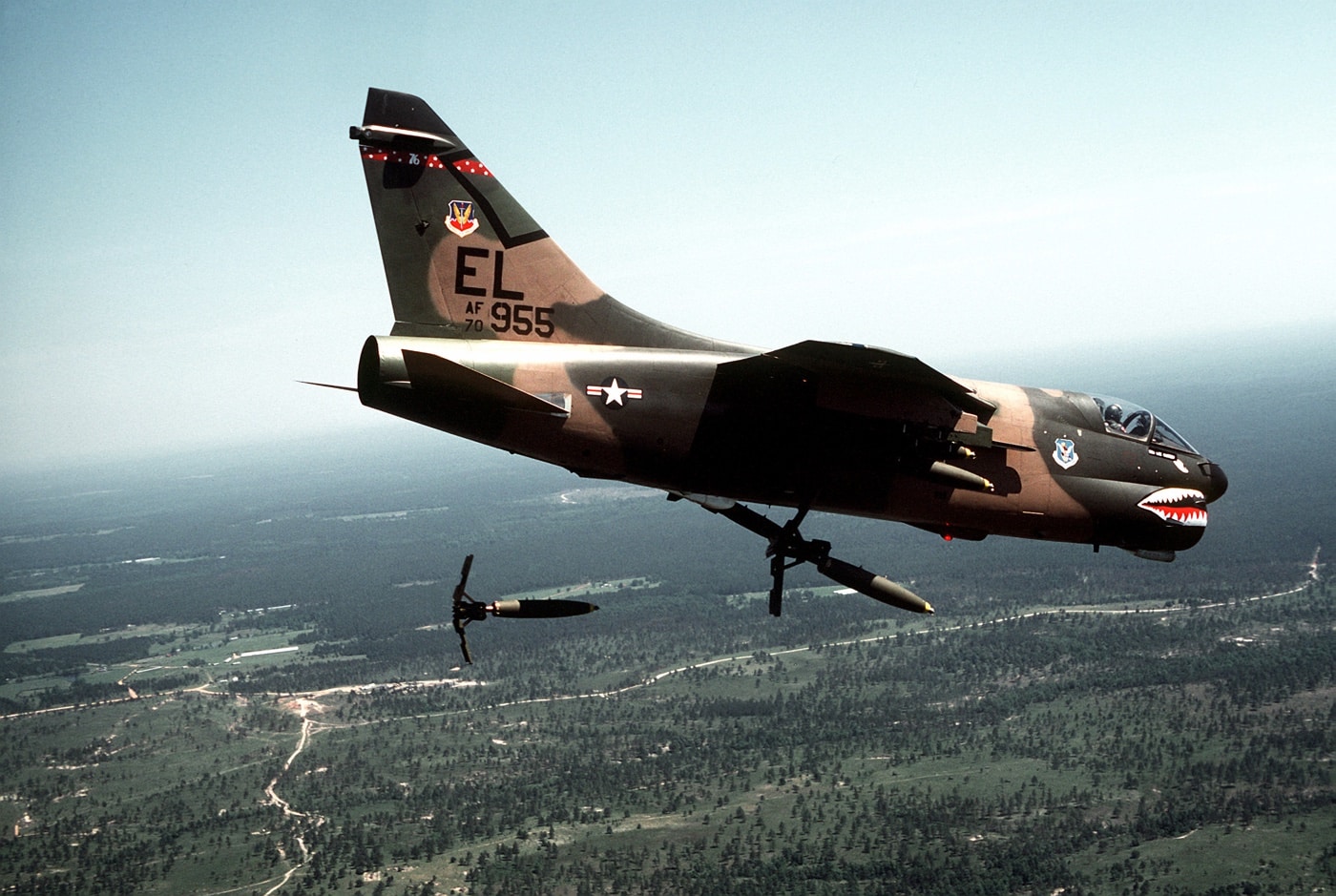
A-7 Corsair II aircraft releasing Mark 82 hi-drag bombs during a training mission at Tyndall Air Force Base in Florida. Image: NARA
In February 1964, Vought was contracted to build the new carrier-based attack aircraft.
As noted, it was to replace the A-4 while being able to carry more bombers over greater distances.
That performance restriction meant that structure weight was reduced while its range and weapons load were greatly increased.
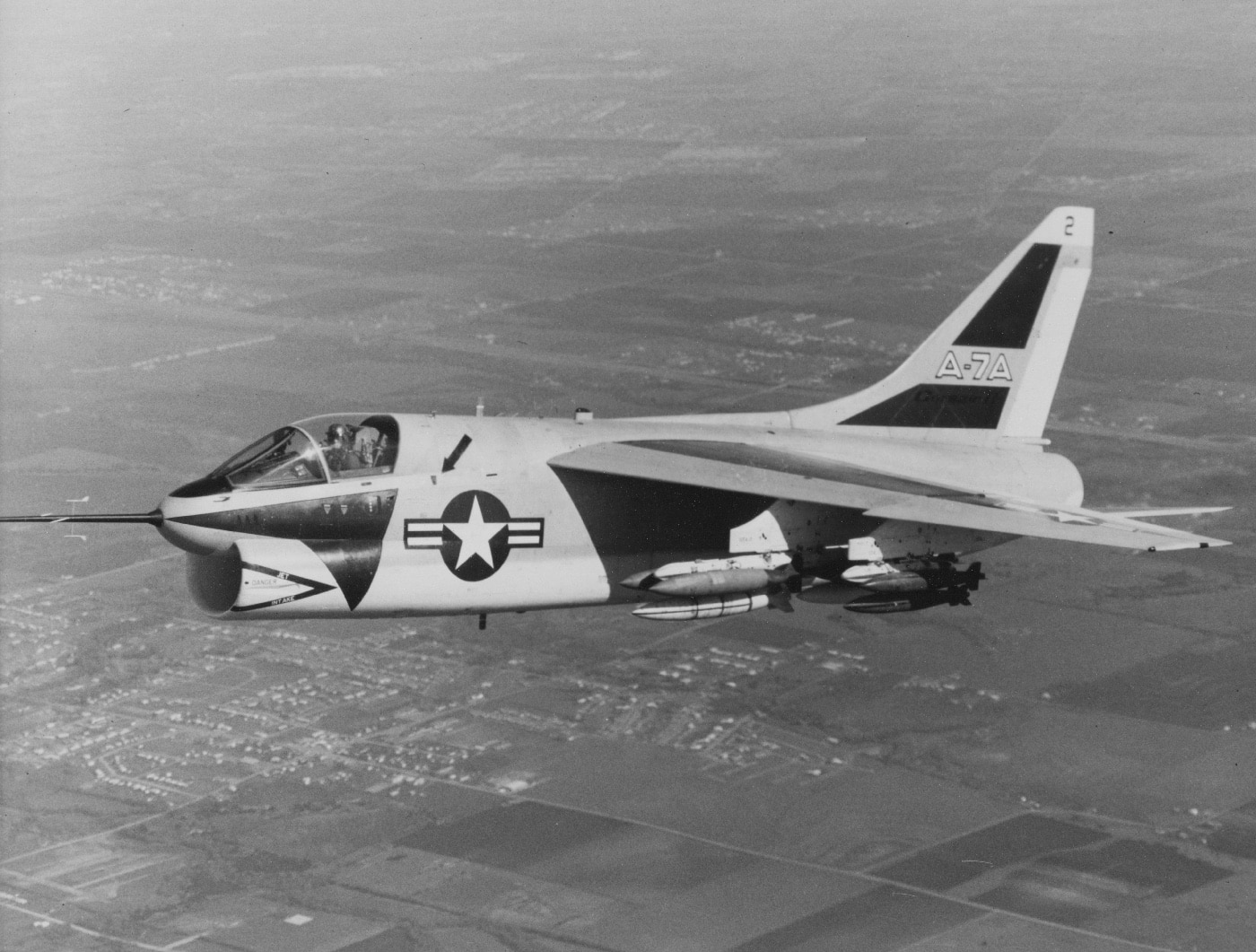
Shown is an early example of the A-7A Corsair II attack plane. The “A” model was the first production model of the aircraft. Image: U.S. Navy
In fact, the A-7 could carry nearly double the payload of the Skyhawk.
The aircraft also featured a retractable refueling probe on the right side of the forward fuselage.
The aircraft also features TACAN, a weapon-aiming computer and optical sight.
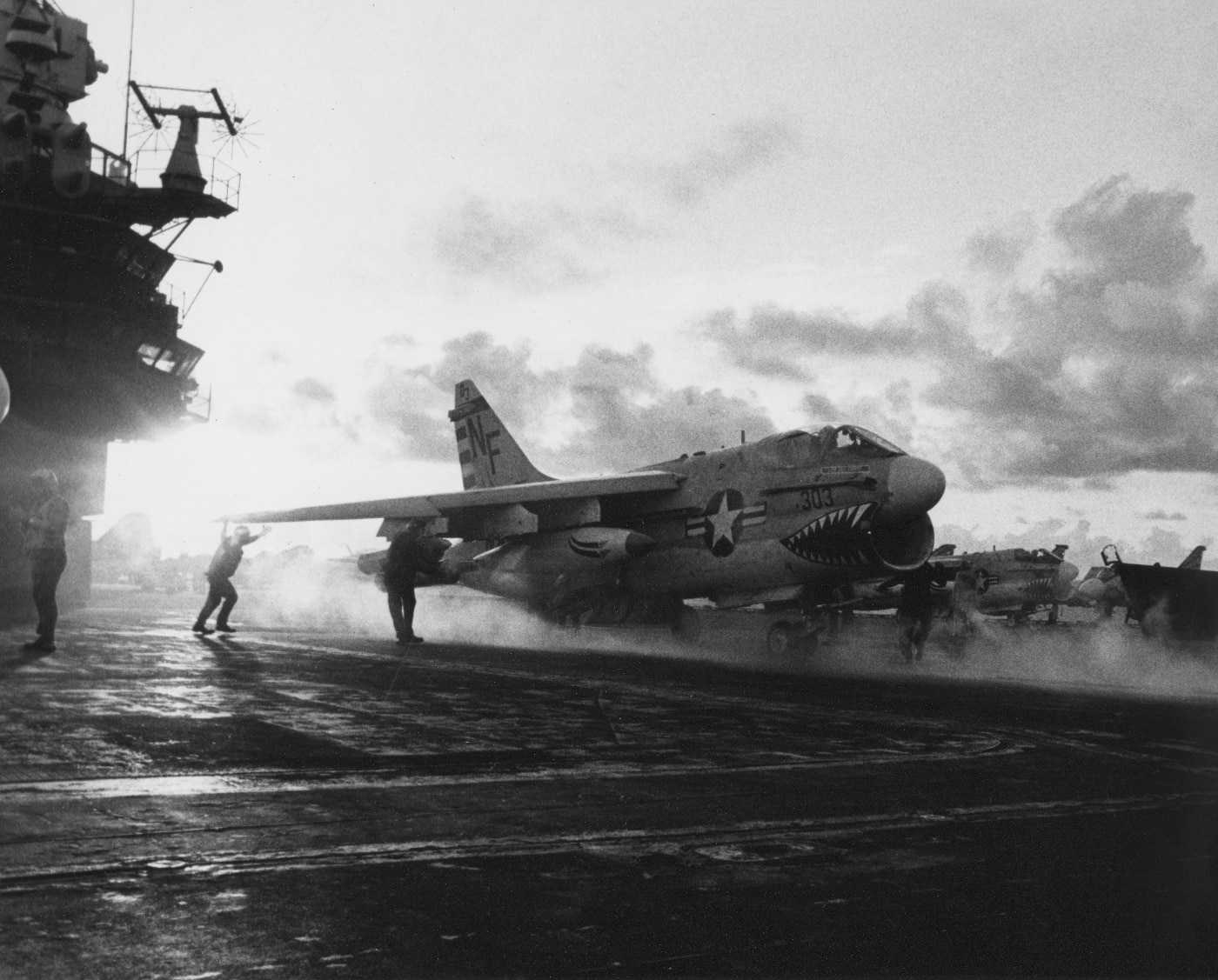
Sailors prepare an A-7 Corsair II for launch from an aircraft carrier. The A-7 Corsair II brought a great deal of ground-attack power to the U.S. Navy when it went into production. Image: U.S. Navy
Heavy Metal Thunder!
Later models were equipped with the Allison TF41-1 (Rolls-Royce Spey derivative).
Vought Ready For Service
The A-7A first took flight in September 1965.
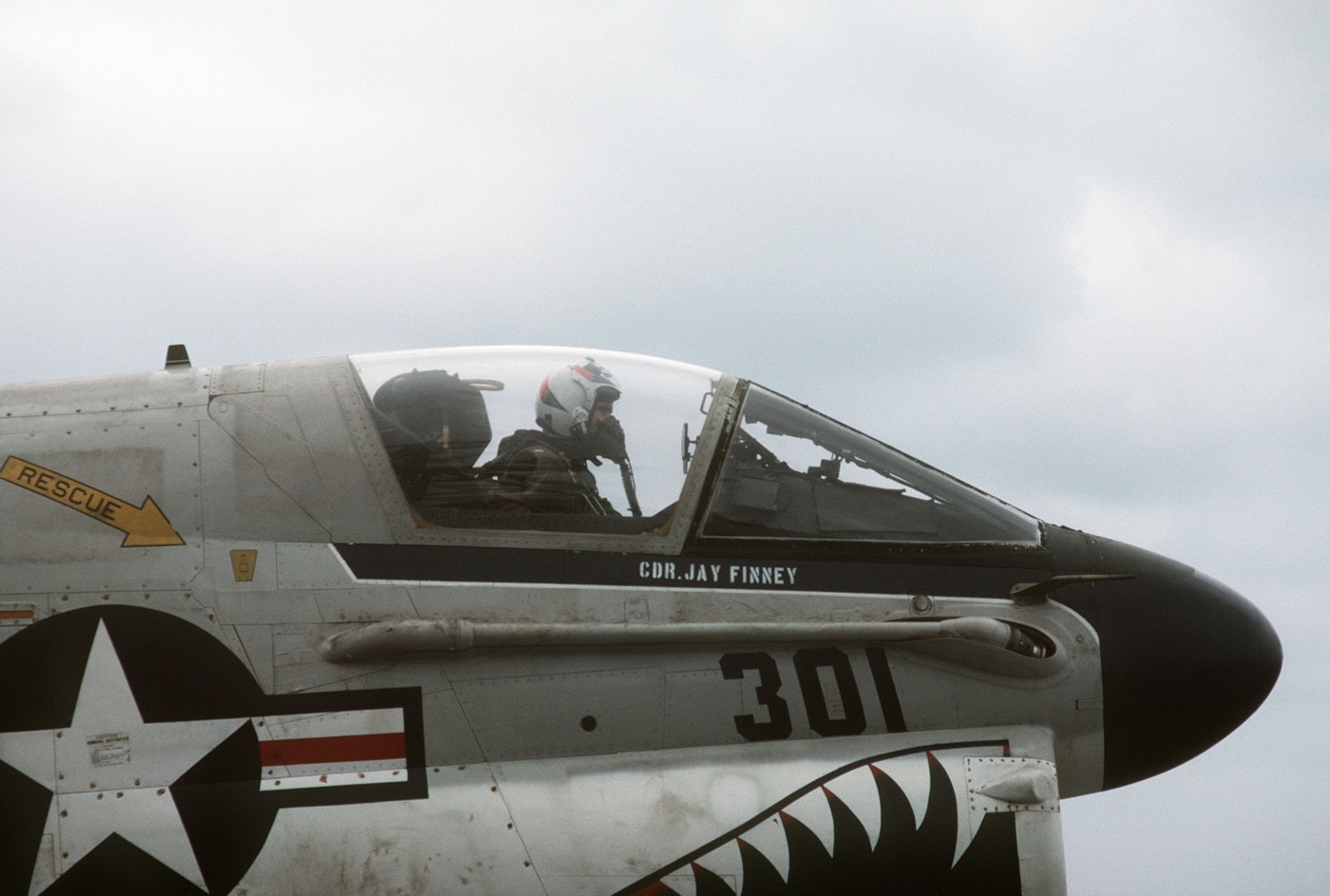
Right-side view of the cockpit of an A-7 Corsair II aircraft. The Corsair had just landed aboard the aircraft carrier USSMidway(CV 41) in March 1985. Image: NARA
Within three years of the initial contract, a large number of A-7 Corsair IIs were in service!
It was notable for being the quickest development program for a new combat aircraft since 1945.
Thats something that would never happen today.
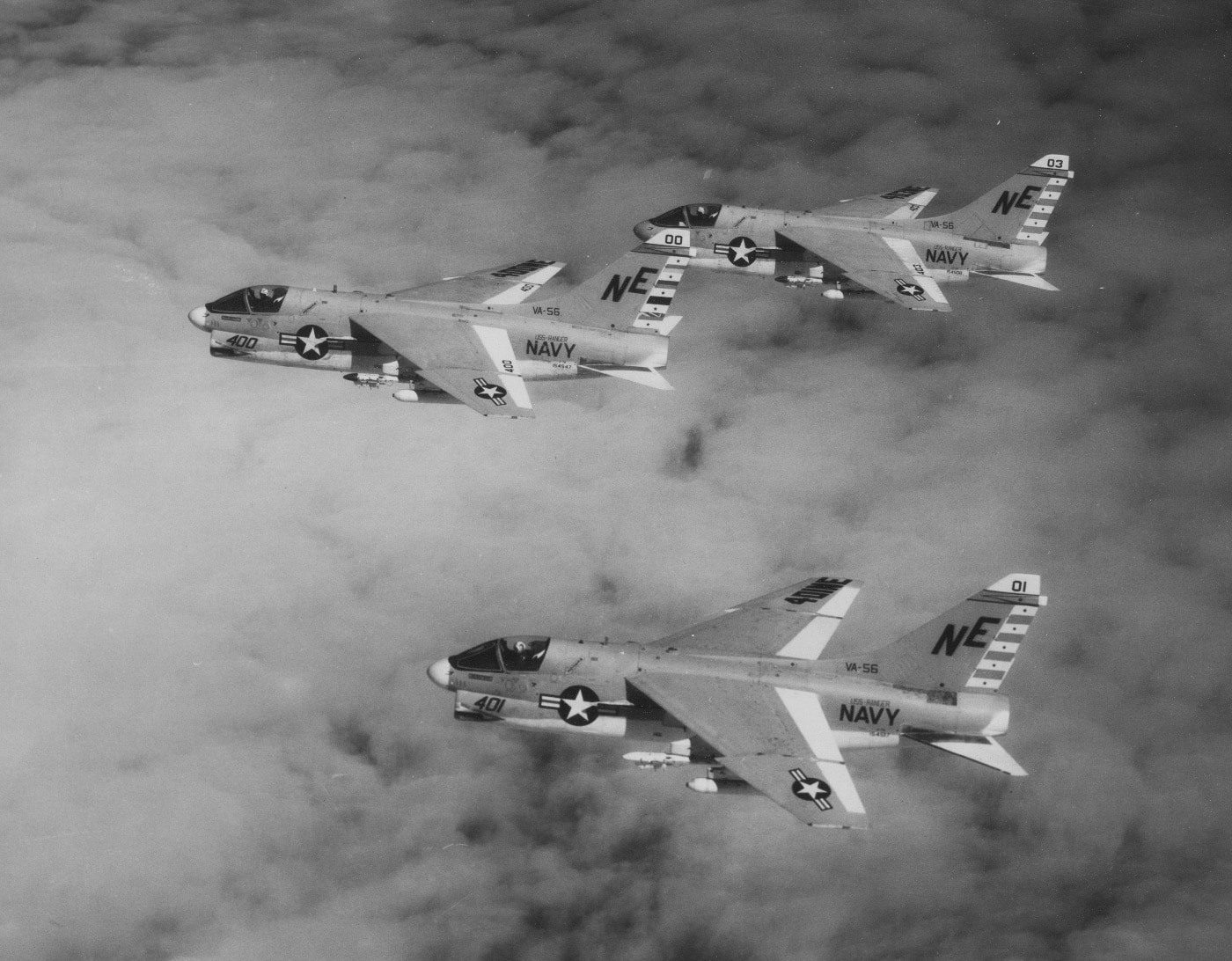
Three A-7B Corsair II aircraft fly in formation. They were part of Attack Squadron 56 (VA-56) assigned to the USSRanger(CVA-61,) aForrestal-class carrieroperating at Yankee Station. Image: U.S. Navy
Moreover, it also proved to be the right aircraft for the era.
Attack Squadron (VA) 147 The Argonauts became the first unit to receive the A-7A.
The squadron later flew support missions during the siege of Khe Sanh from January to July 1968.
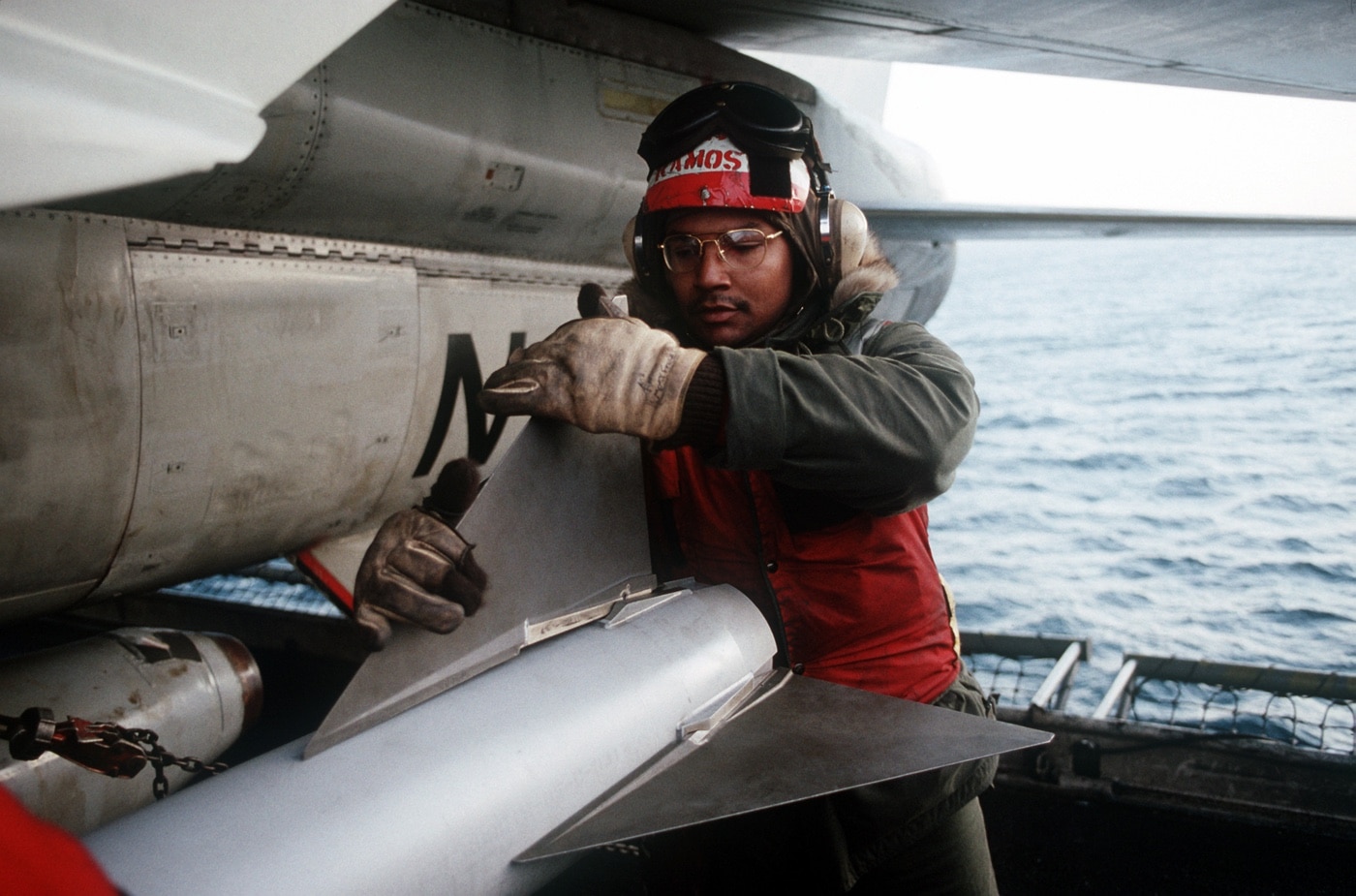
An ordnance crew member inspects an AIM-7 Sea Sparrow missile on an A-7 Corsair II aircraft aboard the aircraft carrier USSConstellation(CV 64) during PACEX ’89. Image: NARA
They also assisted with the aerial mining of North Vietnamese ports which occurred in the Vietnam War.
It was employed in combat operations throughout the 1980s in Grenada, Lebanon, Libya, and Panama.
That marked the final deployment of the venerable Corsair II.
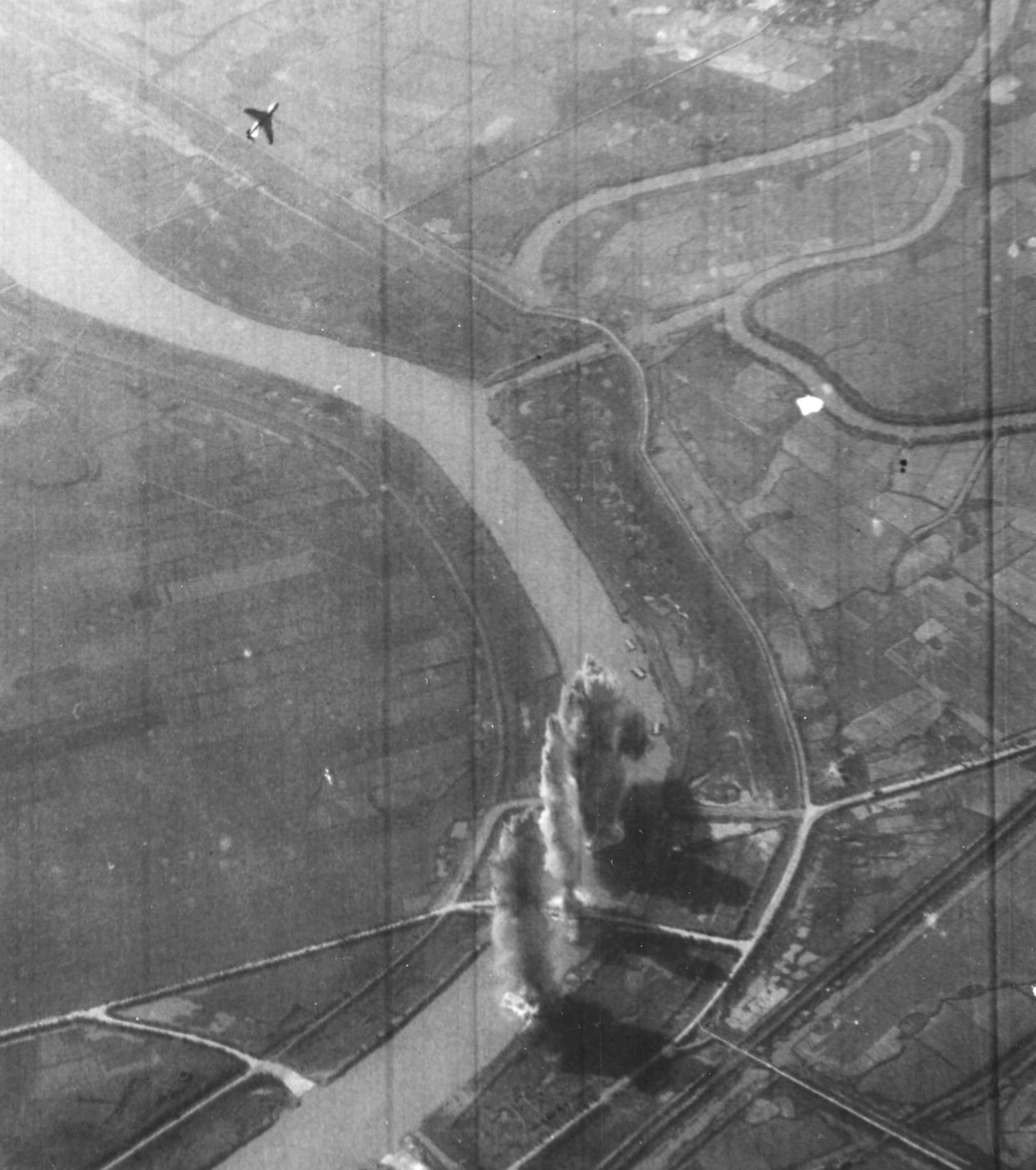
U.S. Navy A-7 Corsair II planes, one of which is seen in the upper left, attack the Hai Doung Highway Bridge, North Vietnam on January 16, 1967. Image: U.S. Navy
The A-7, along with anA-6 Intruder, was shot down by Syrian surface-to-air missiles (SAM).
The A-7 pilot, Commander Edward Andrews, managed to guide his damaged Corsair over coastal waters before ejecting.
He was subsequently rescued by a Lebanese fishing boat and safely returned to the U.S. Marines.
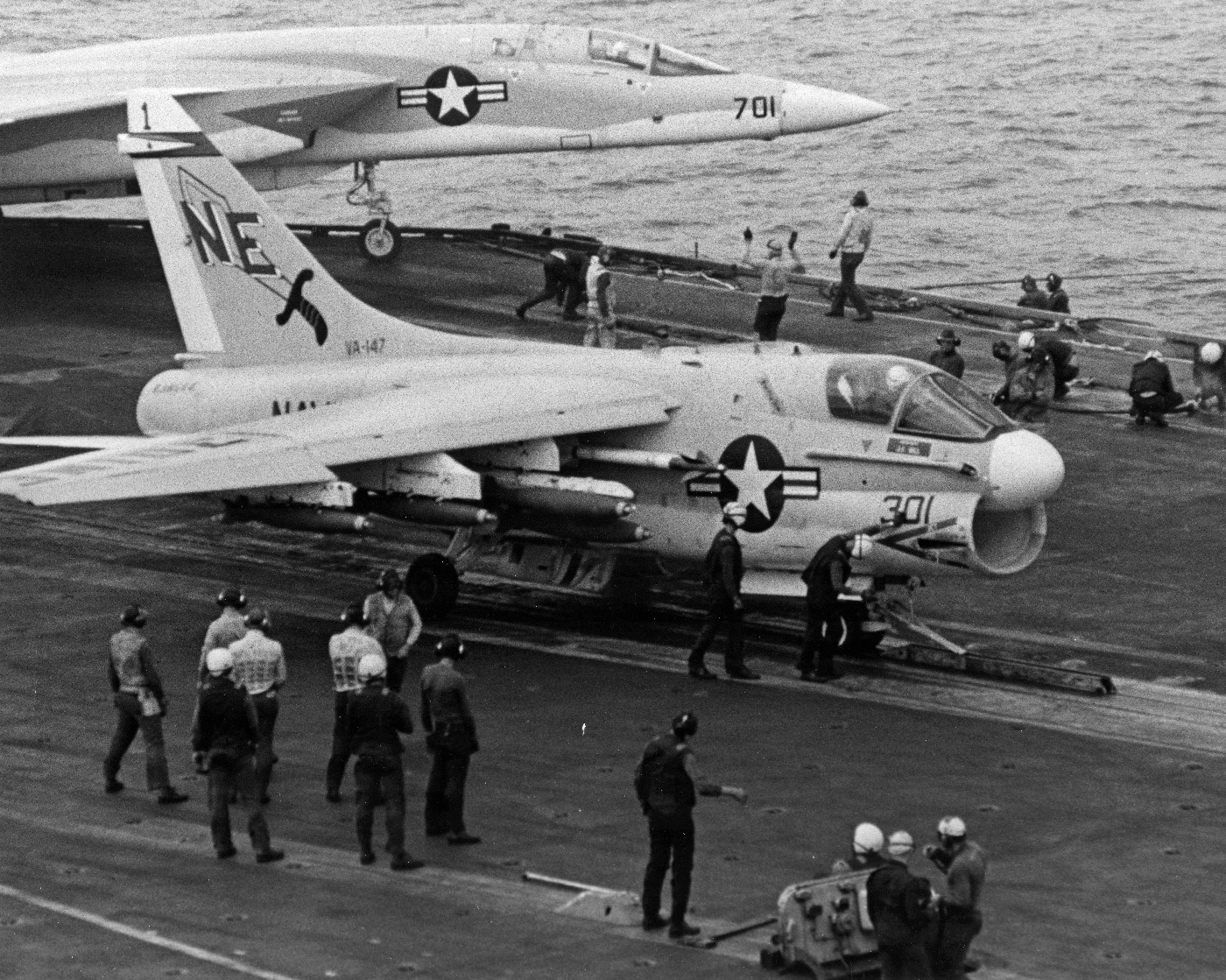
An A-7 Corsair II of Attack Squadron 147 (VA-147) preparing for a launch on missions over North Vietnam. Image: U.S. Navy
That is believed to be the final A-7 lost in combat operations.
The Corsair IIs Legacy
In total, more than 1,500 A-7 Corsairs were produced in all variants.
The aircraft was also exported to Greece in the 1970s and later to Portugal.
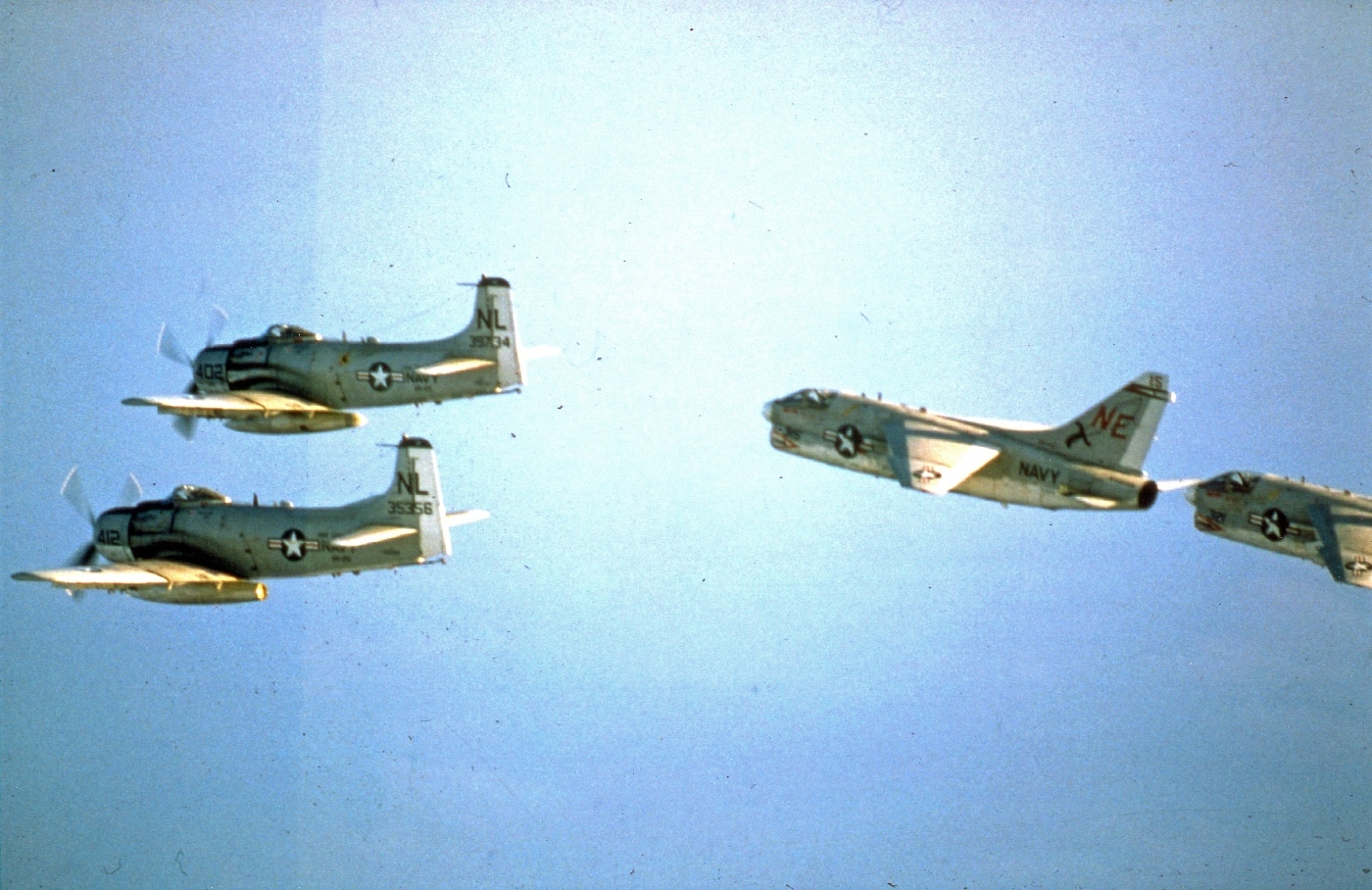
A pair ofA-1 Skyraiders(left) and two A-7 Corsair II attack aircraft over the Gulf of Tonkin head toward North Vietnam on a combat mission in January 1968. Image: U.S. Navy
The Hellenic Air Force was the final operator of the Corsair II, retiring its last A-7s in 2014.
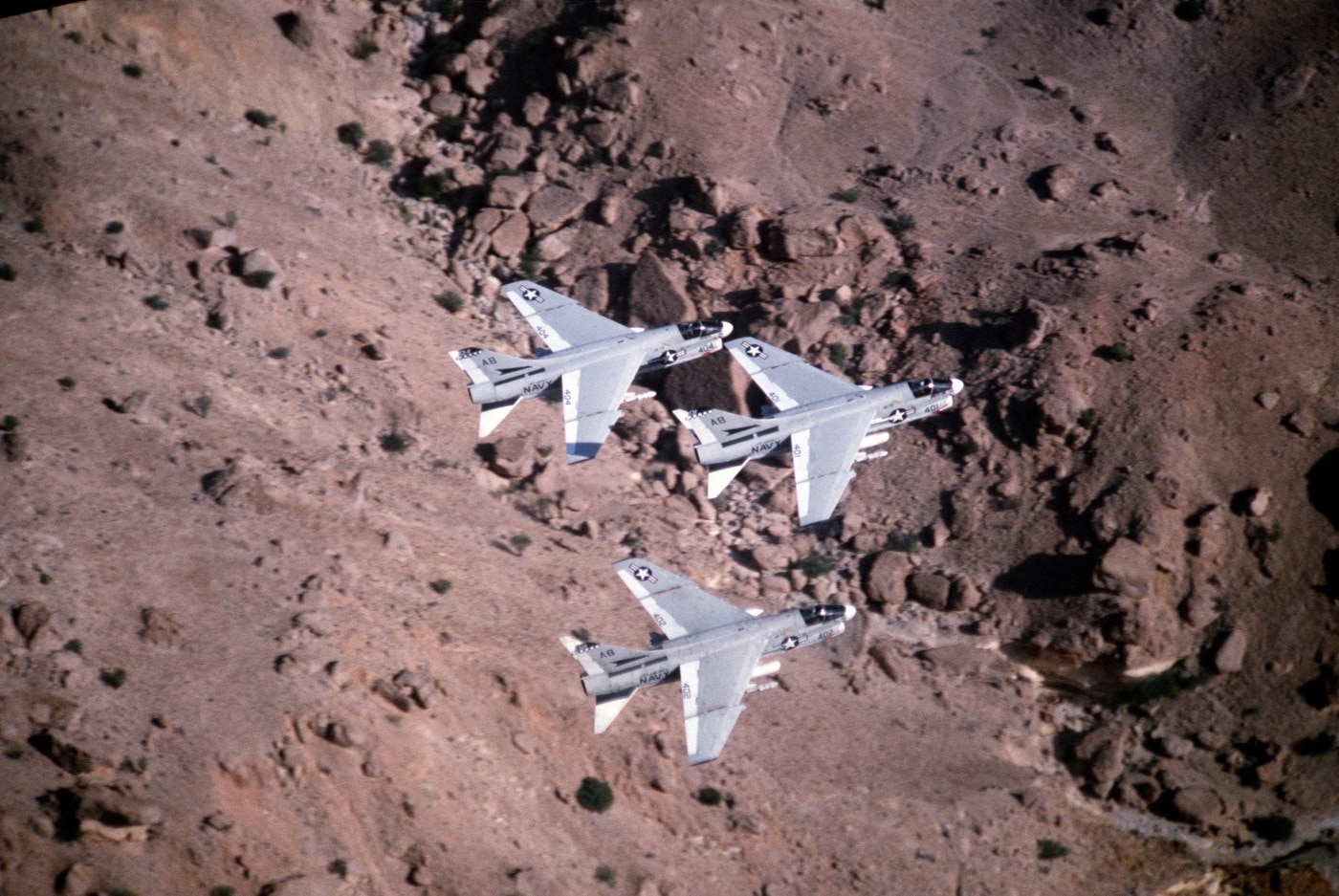
Three A-7 Corsair aircraft assigned to the aircraft carrier USSAmerica(CV 66) fly over the Egyptian desert during Bright Star ’81. Image: NARA
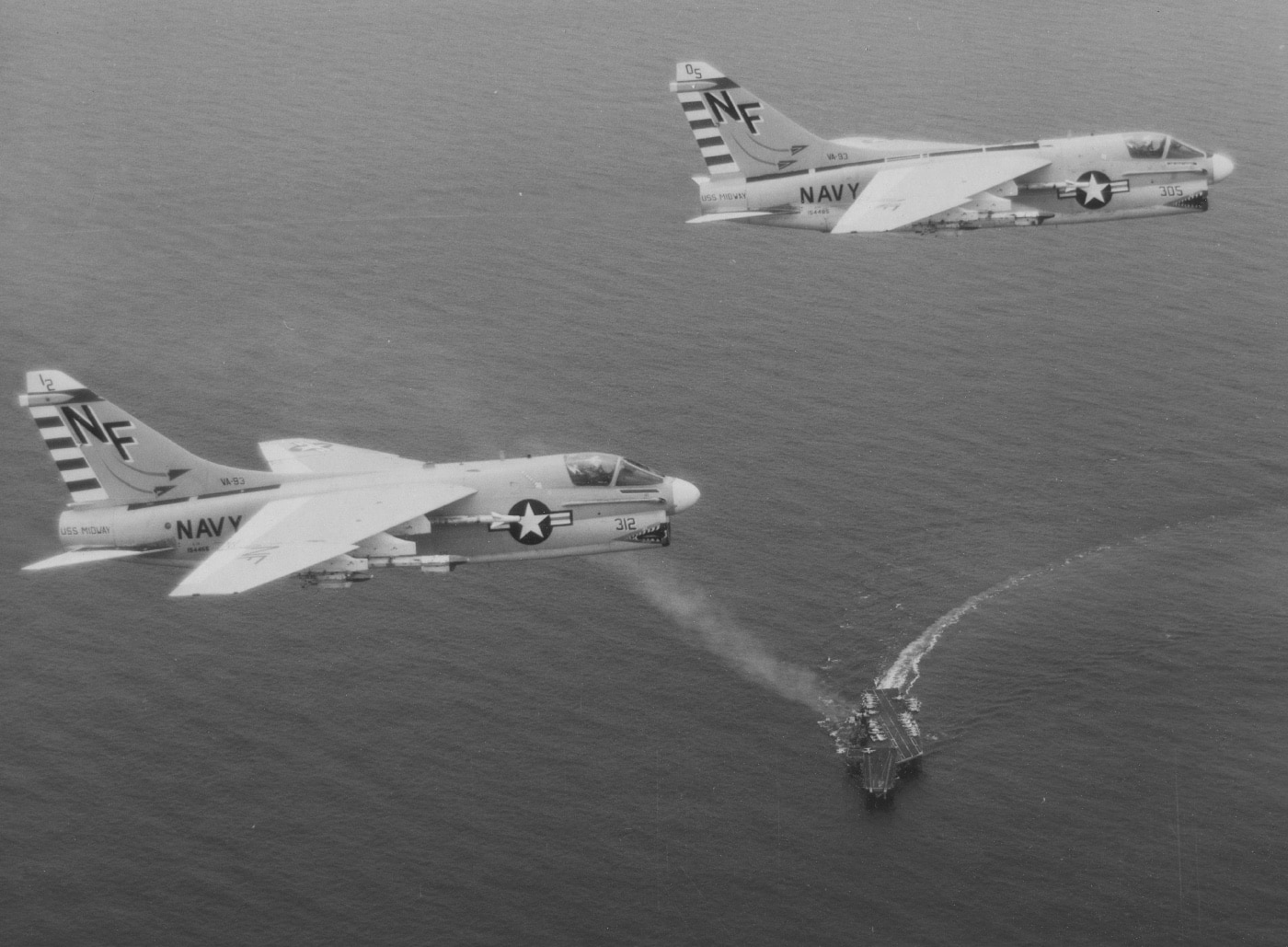
A-7 Corsairs of Attack Squadron 93 (VA-93) fly over the USSMidway. Image: U.S. Navy
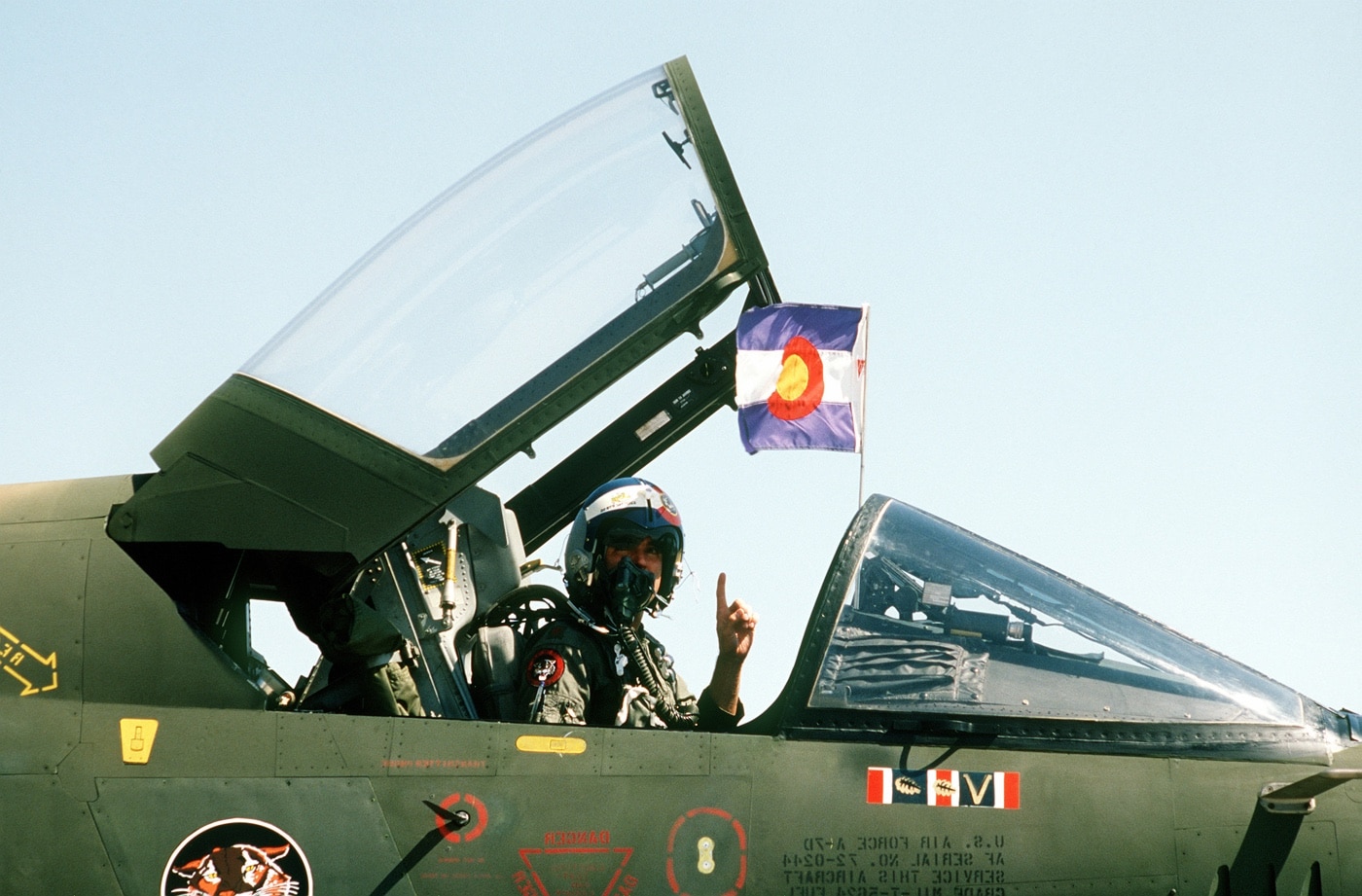
An A-7 Corsair II aircraft pilot from the Colorado Air National Guard displays his colors upon arrival during Operation Gunsmoke ’81. Image: NARA
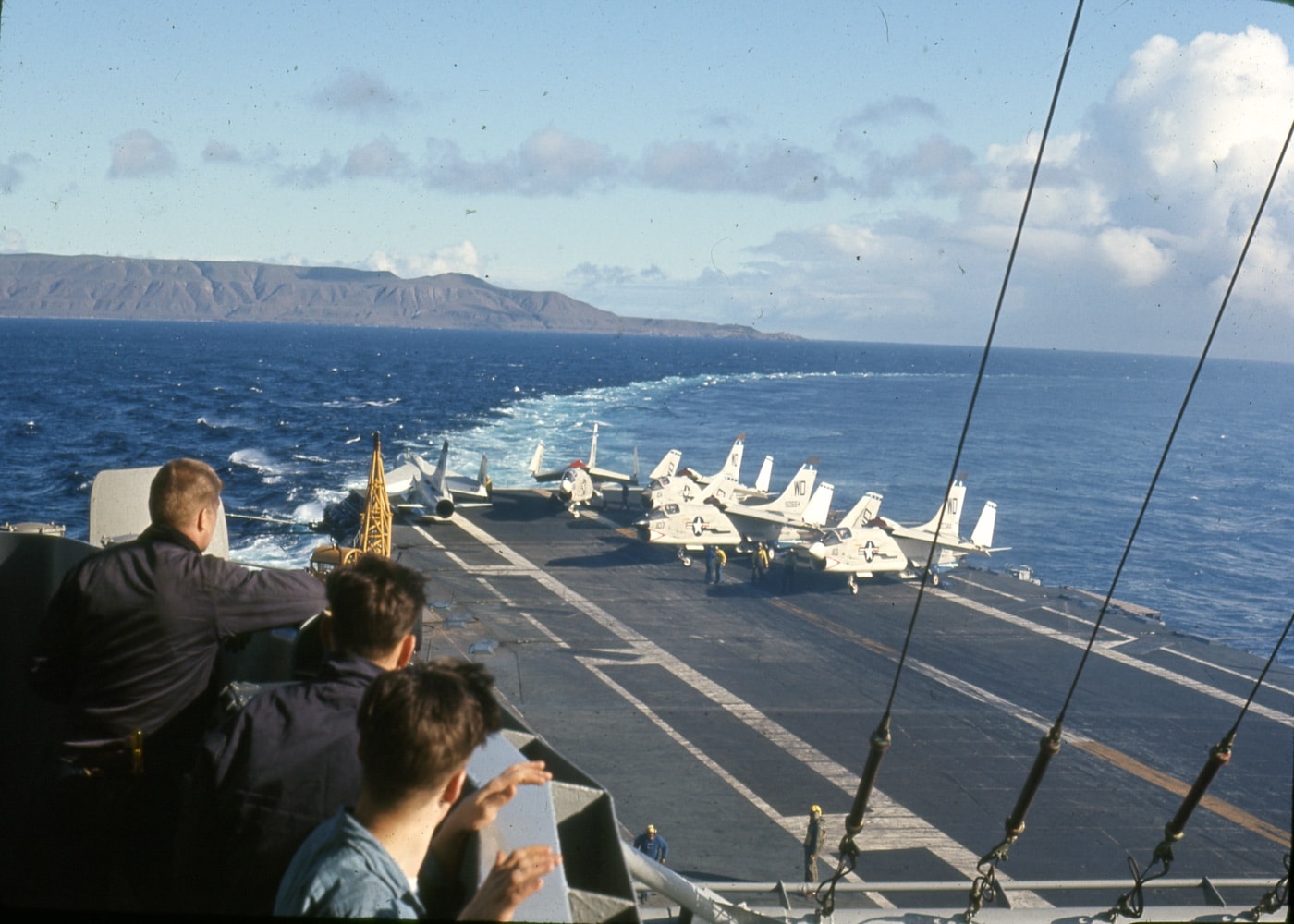
A-7 Corsairs on the deck of the USS Oriskany (CV-34). Image: Lt. Cmdr. Vernon Nolte/U.S. Navy
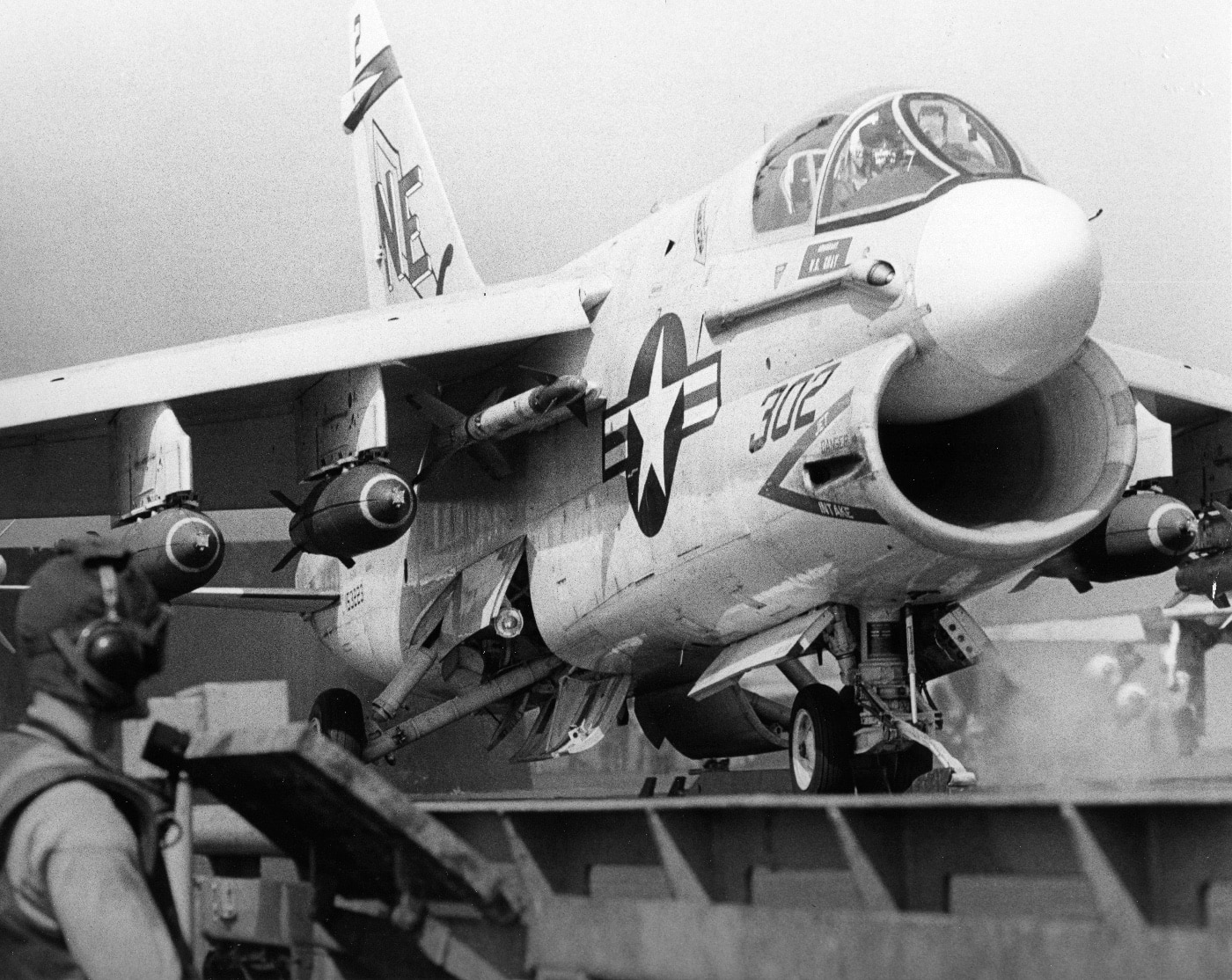
A-7 Corsair II of VA-147, on the catapult of an attack carrier of the U.S. Seventh Fleet. The mission was a target in North Vietnam. Image: U.S. Navy
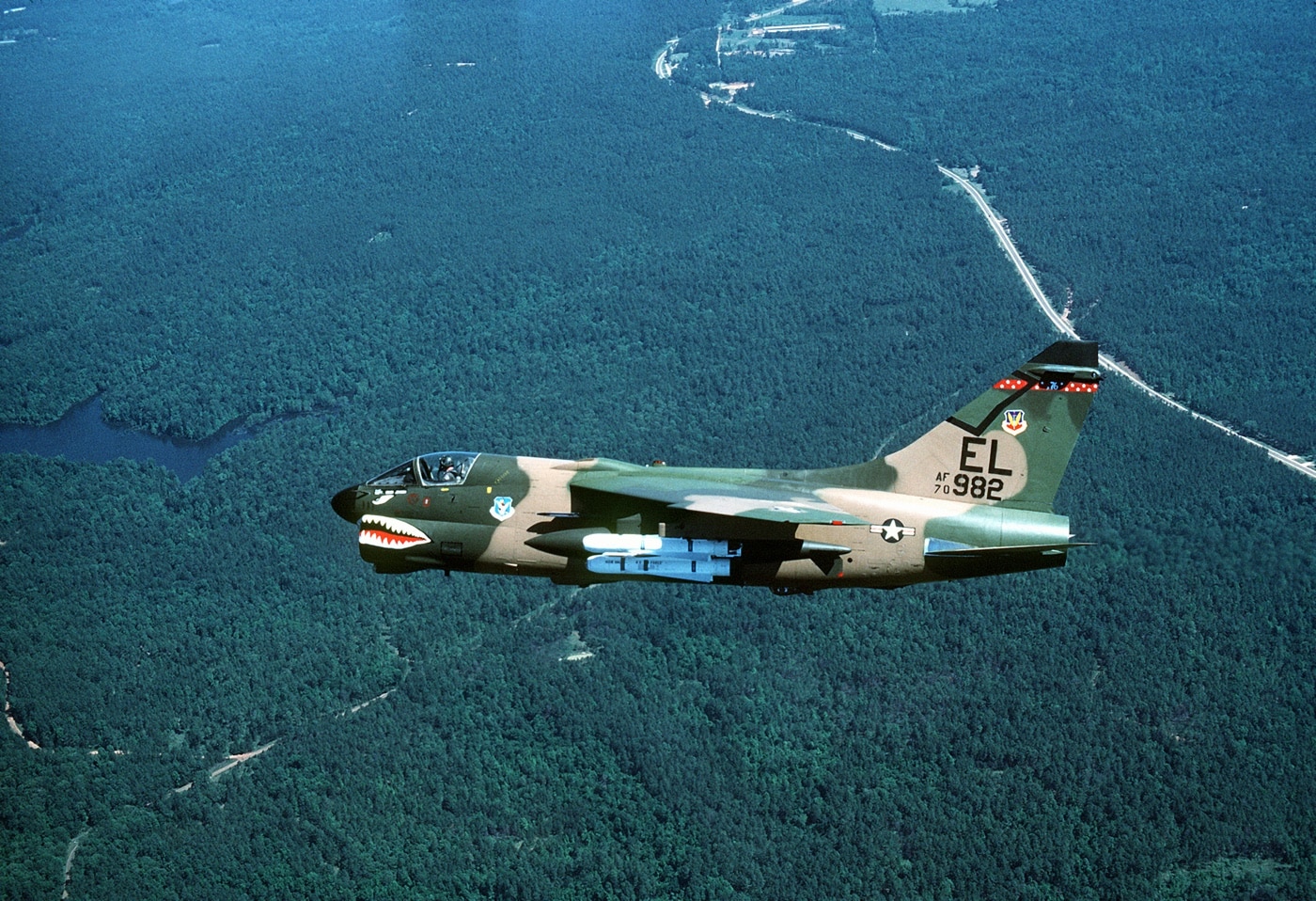
A U.S. Air Force A-7D Corsair II aircraft of the 76th Tactical Fighter Squadron, 23rd Tactical Fighter Wing, carries four AGM-65A Maverick missiles in-flight over the Tyndall AFB range in 1980. Image: NARA
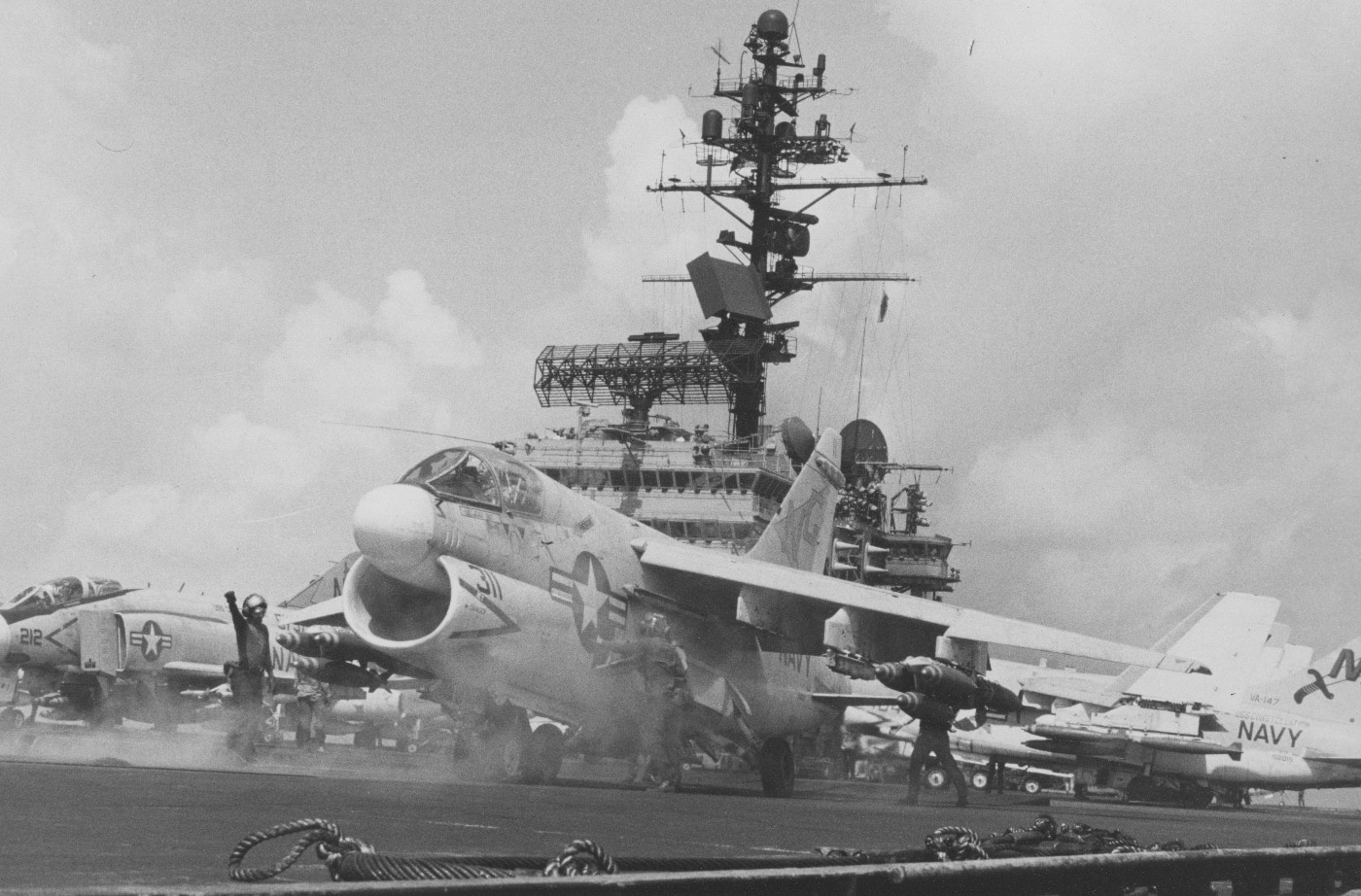
An A-7E Corsair II launches from the deck of the USSConstellation, aKitty Hawk-class aircraft carrier. Image: U.S. Navy
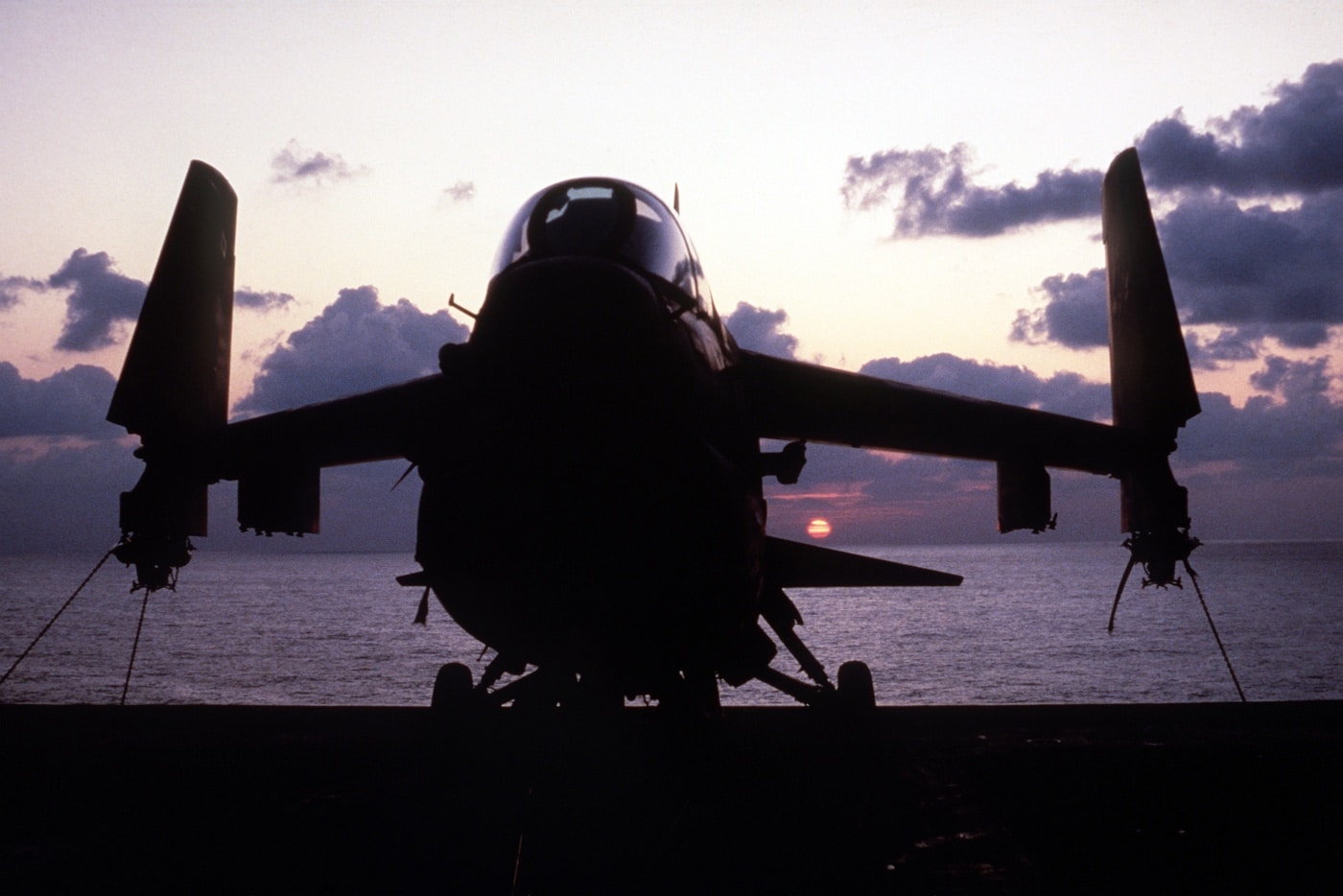
An A-7 Corsair II aircraft silhouetted against the setting sun aboard the nuclear-powered aircraft carrier USSCarl Vinson(CVN 70) in April, 1985. Image: NARA
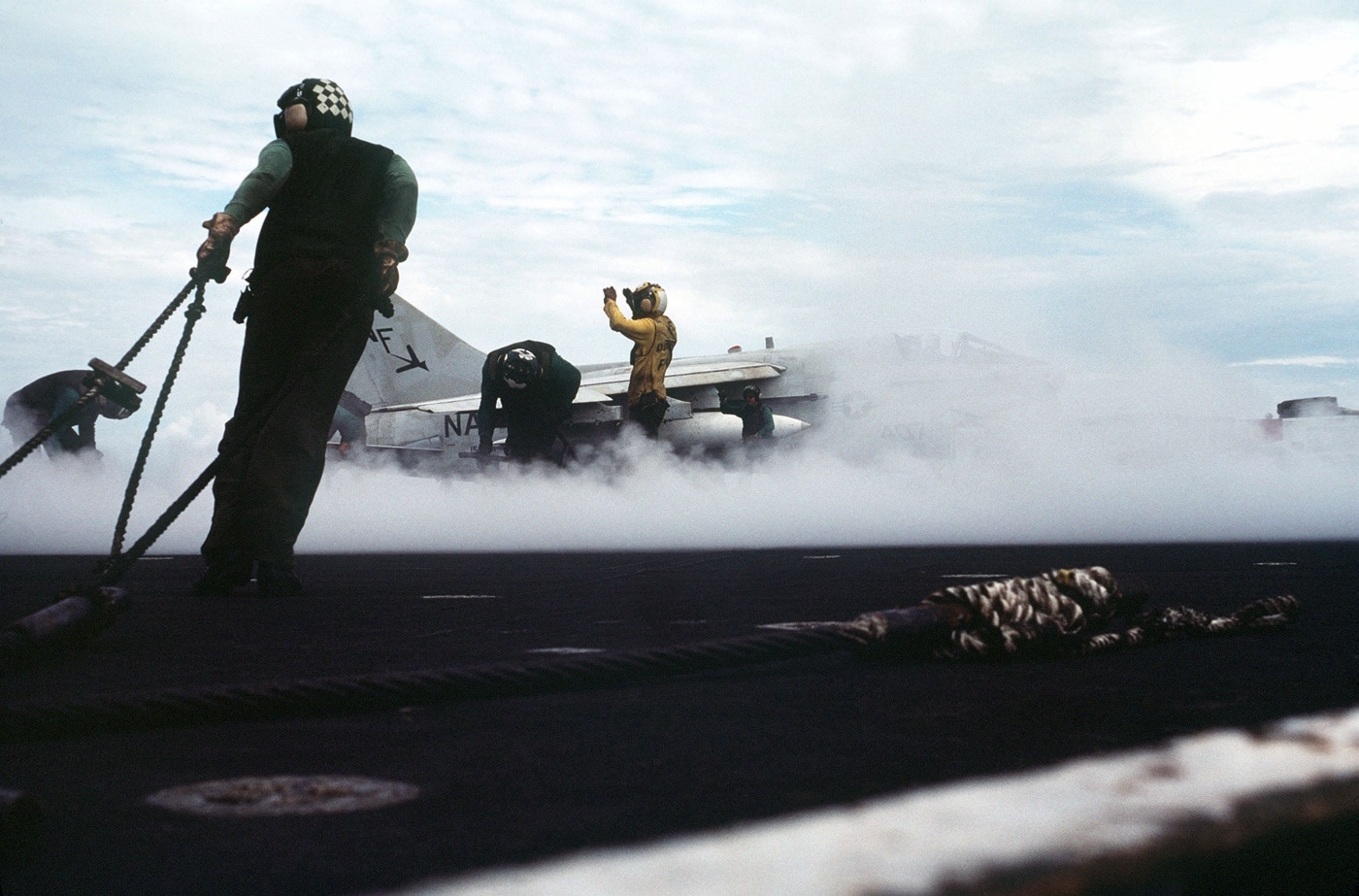
Steam from a catapult partially obscures an A-7 Corsair II aircraft preparing for takeoff on the flight deck of the aircraft carrier USSMidway(CV41.) Image: NARA




